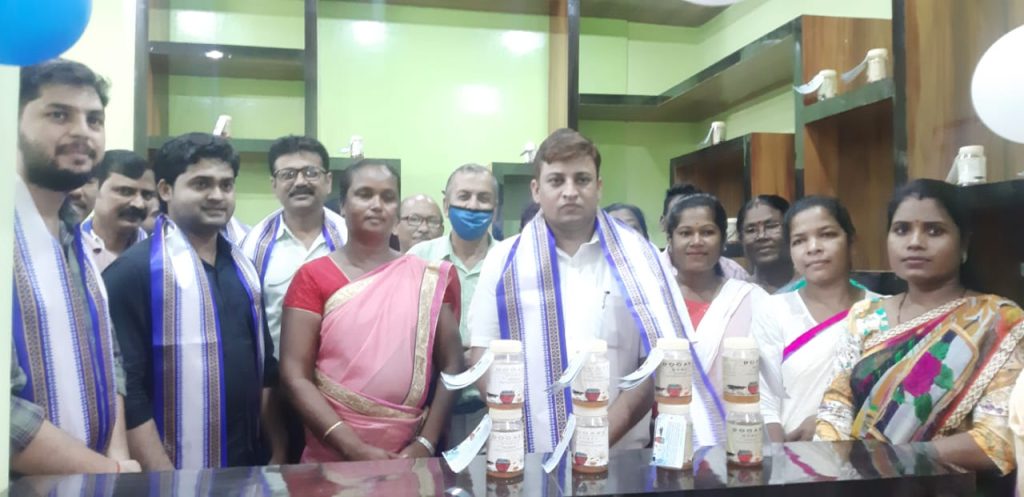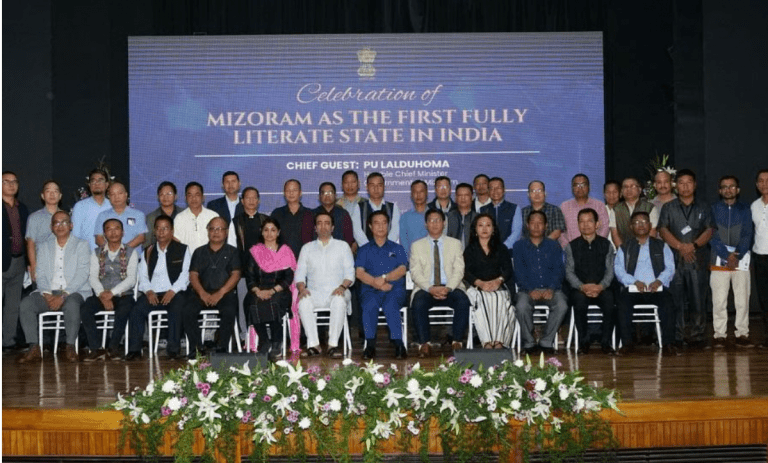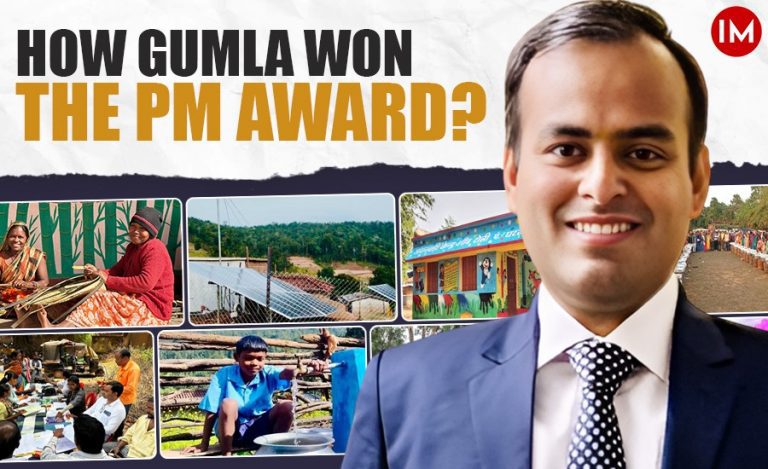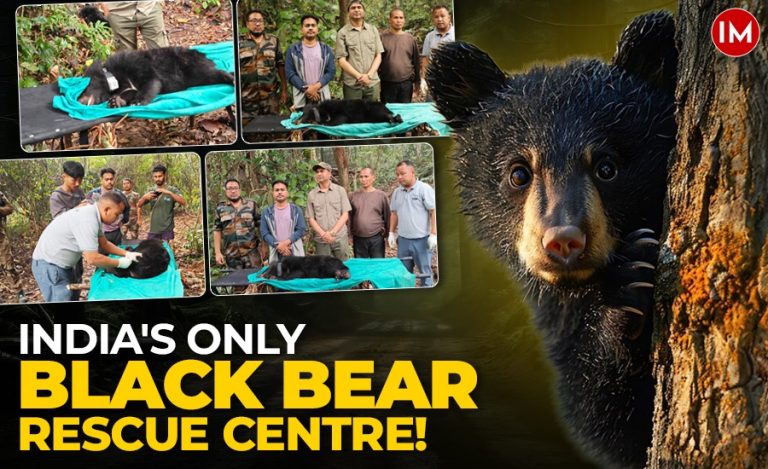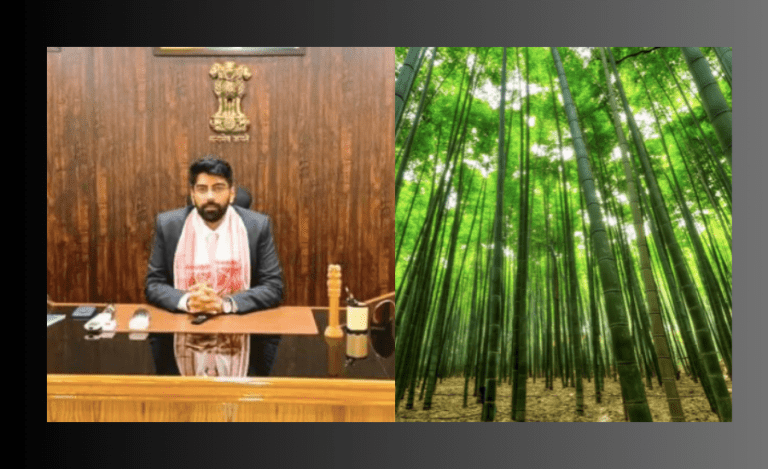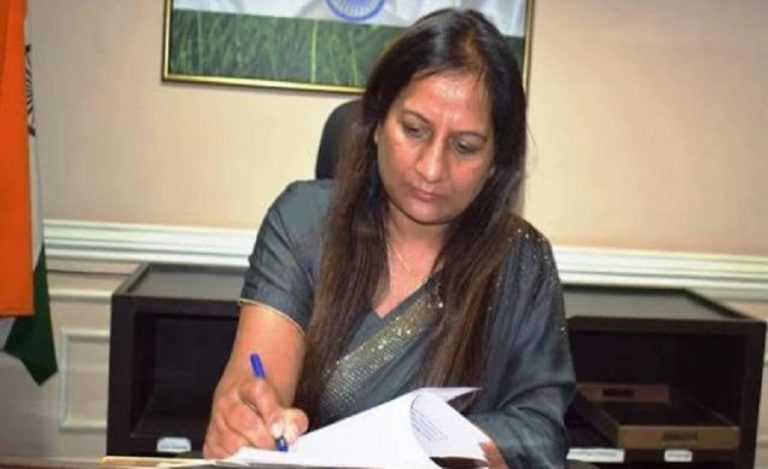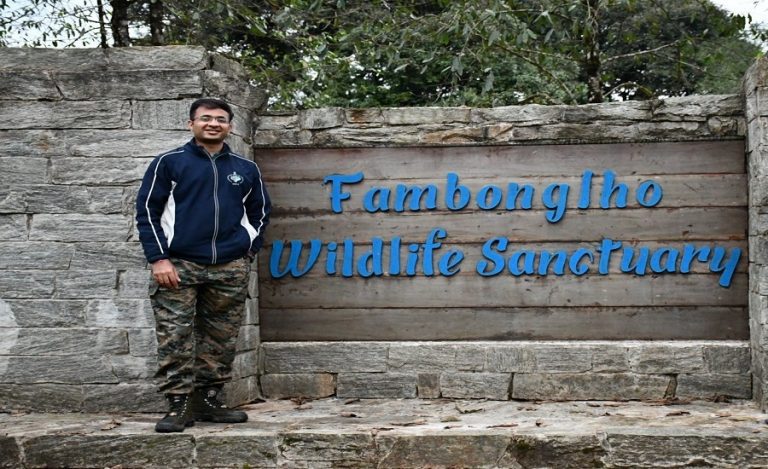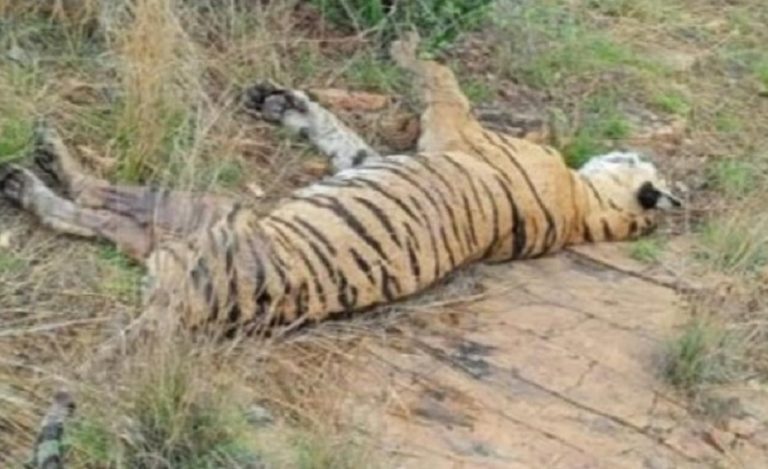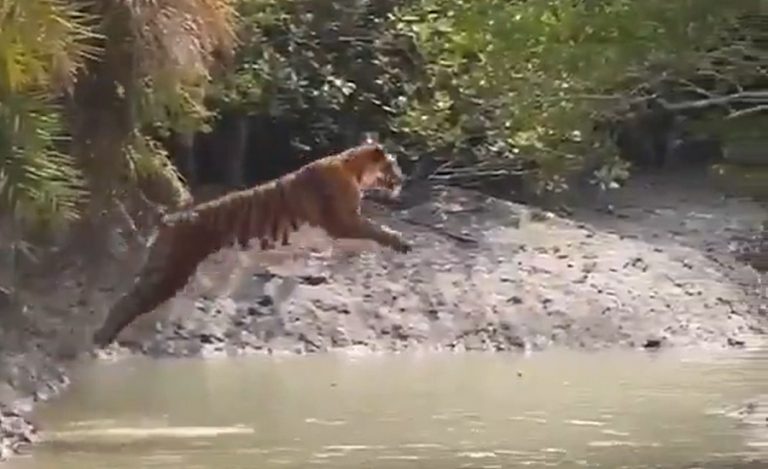A Dooars Honey Outlet Cum Refilling Unit is the latest in a series of initiatives rolled out by the district administration of Alipurduar to provide alternative livelihoods to forest dwellers and the tribal people living in the fringe areas of the Jaldapara National Park and Buxa Tiger Reserve.
After introducing honey production through modern methods to them, now the administration has opened this outlet at Karmatirtha at a cost of around 15 lakhs, where women self help groups (SHG) are engaged to work in a professional and systematic manner, which will not only enhance their earnings but also strengthen their work’s brand value.
To get more details, Indian Masterminds spoke to District Magistrate of Alipurduar, Mr. Surendra Kumar Meena, a 2011-batch IAS officer under whose leadership these initiatives are being taken up.
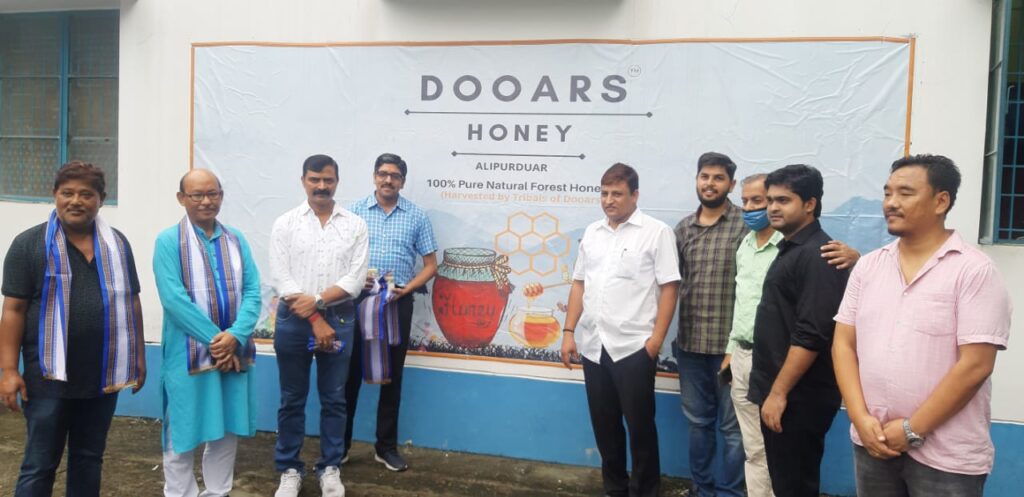
DOOARS HONEY PROCESSING UNIT
The Dooars Honey project engages more than 1500 families and produces 10,000 kg honey annually. The bottling and sale is being done by a registered farmer co-operative, Dooars Honey Alipurduar District Co-Operative Society Ltd.
Speaking to Indian Masterminds, Mr. Meena said, “We started this initiative with the aim of providing alternate livelihoods to the tribals and for women empowerment. We focused on increased production as well as better sale. But if you want to do something better in the market, then you need the support of advanced technology. Therefore, the processing unit was started and the branding as well, to get a better response in the market.”
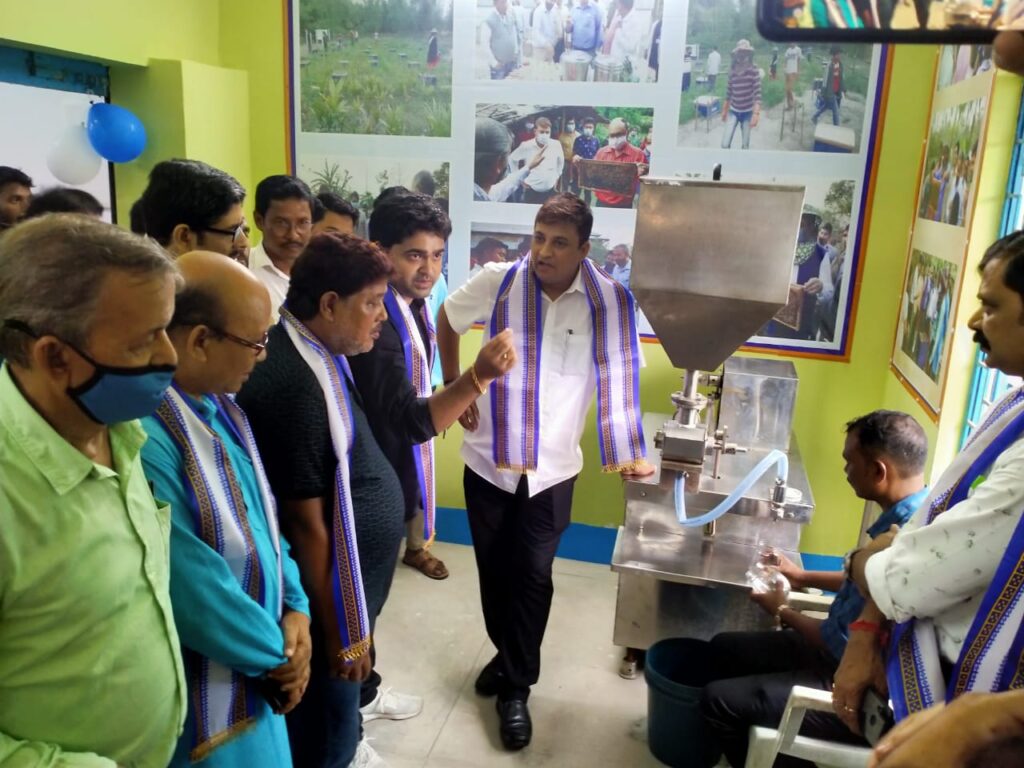
Now, all the honey produced in Alipurduar district is collected and comes to one place. There are two machines in the processing unit, where packaging, labeling and branding are done after purifying the honey. Outlets have also been set up. One main outlet is at the district headquarters, and smaller outlets will be set up in many places. These outlets will have complete information related to honey and their sale. Orders can also be placed from here.
“The special thing is that from the processing unit to the outlets, tribal women’s SHGs will operate and their management will be done by the cooperative society formed for Dooars Honey,” Mr. Meena said.
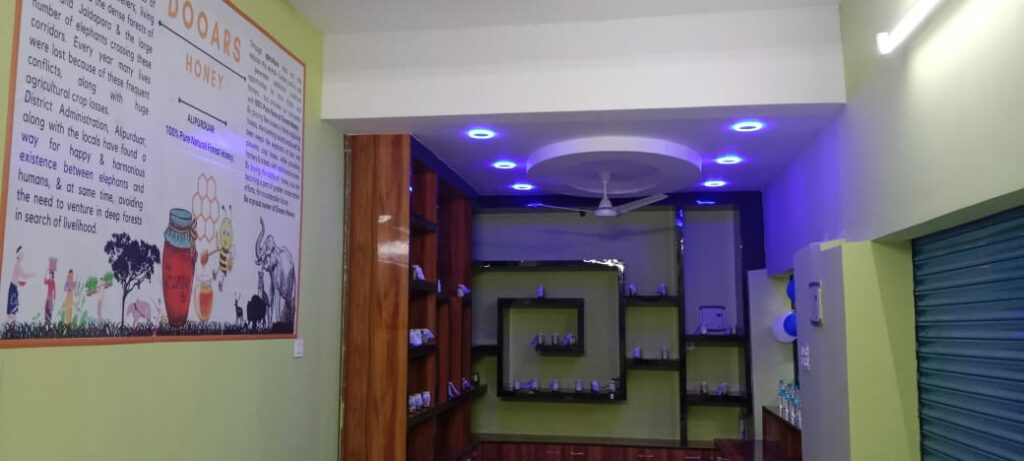
USED BEE FARMING TO KEEP ELEPHANTS AWAY
Earlier, to reduce man-elephant conflict in the district and at the same time provide livelihood opportunities to local villagers, the district administration had introduced placing of bee boxes in the farms adjoining the forests. The humming sound produced by bee keeps the elephants away and, at the same time, and the pure forest honey provides the local people with additional income.
In the adjoining human-populated areas of the Jaldapara National Park and Buxa Tiger Reserve, man-pachyderm conflict not only leads to loss of lives but huge agriculture crop losses, too. By introducing honey boxes, the district administration found a way for harmonious existence between elephants and humans, and also do away with the need for the local villagers to venture into the deep forest in search of livelihood. Introducing them to beekeeping serves two purposes.
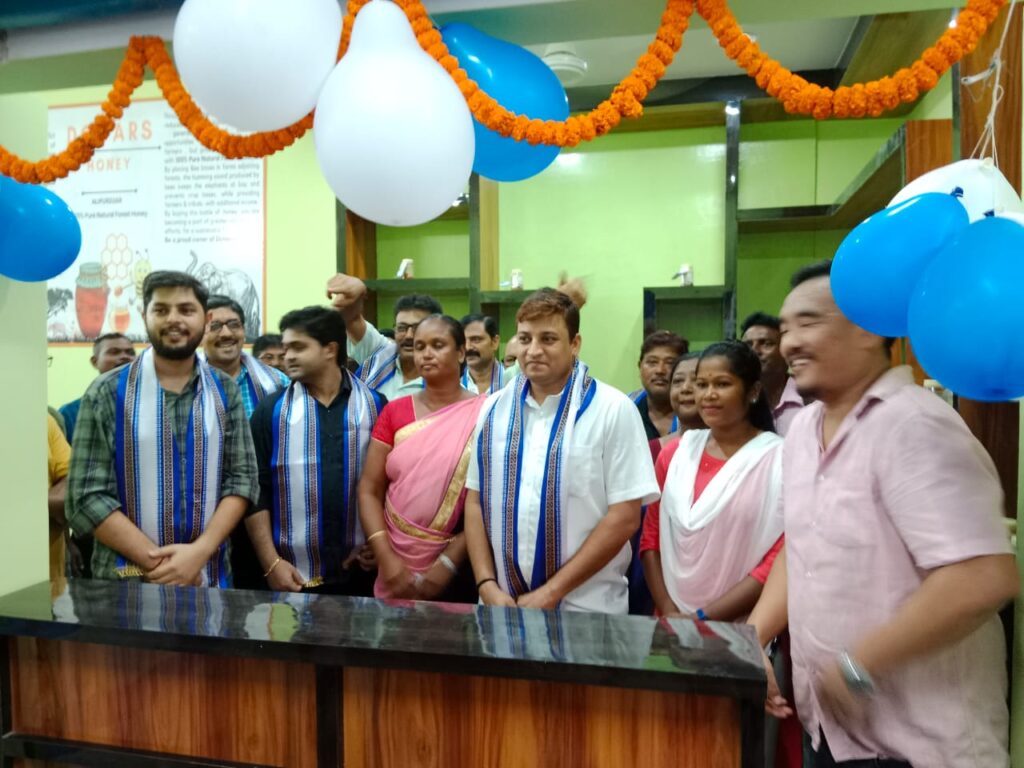
The Bee Boxes are handed over to the beneficiaries, absolutely free of cost under the state government’s ‘Utkarsha Bangla’ scheme. Around 1000 families have been included in this project and till now Rs. 1.8 crore has already been funded.
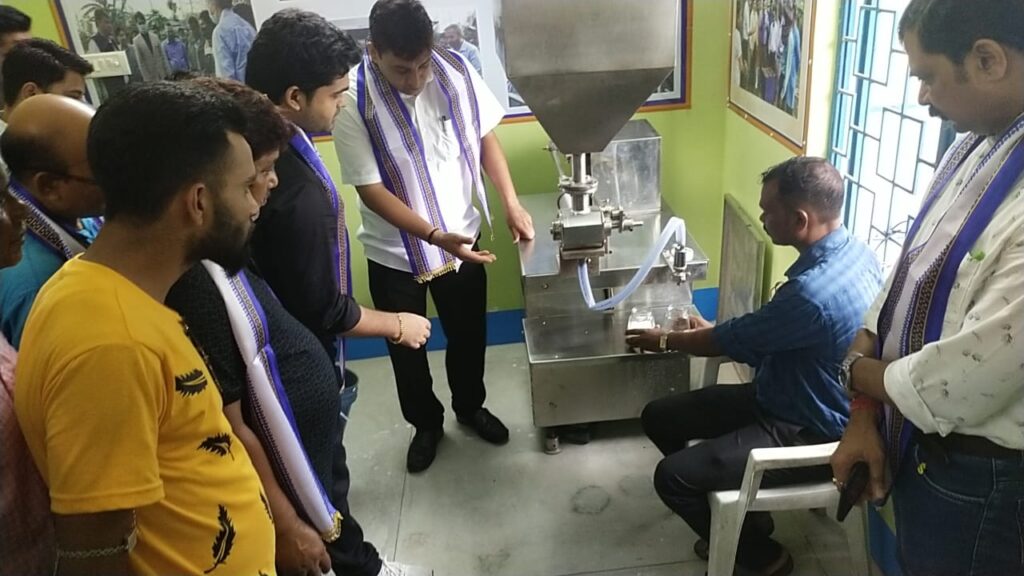
GI TAG
An estimated 10,000 kg of honey will be produced in the district under this scheme annually. Mr. Meena told Indian Masterminds that they have already got a FSSAI license and have applied for Geographical Indication (GI) tag as well. He added that each bottle of Dooars honey will not only offer people a pure organic product but also save precious lives, as the honey project was conceived for harmonious existence between elephants and human.
Inauguration of "Dooars Honey " Outlet Cum Refilling unit at Alipurduar 2 block Karmatirtha, now SHG Women will do the work with more professional & systematic manner.#EgiyeBangla #DooarsHoney #WomanEmpowerment #Alipurduar pic.twitter.com/MbLuBhwAdB
— Surendra Kumar Meena , IAS (@iSurendraMeena) July 30, 2022

